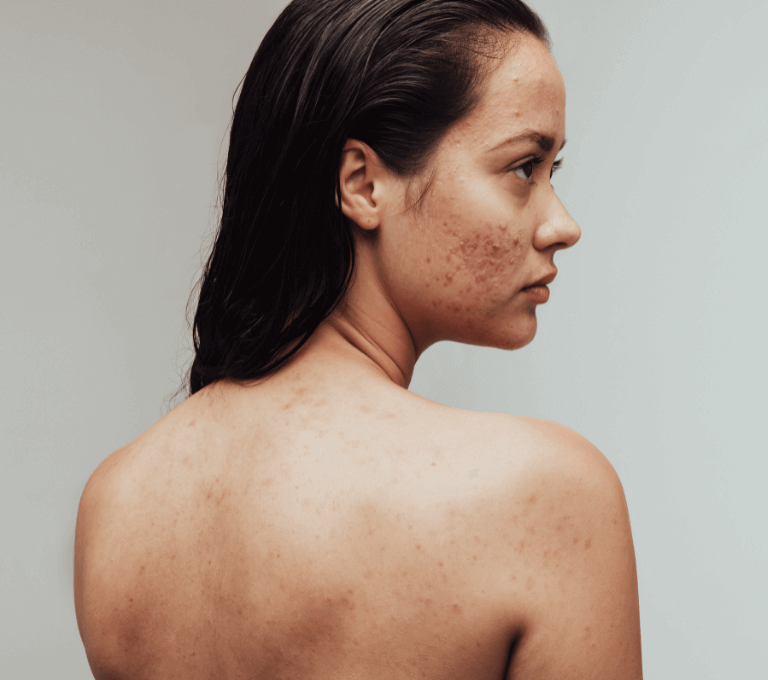Understanding acne scarring
Before we delve into the solutions, it’s important to understand what acne scars are. Acne scars are the result of inflammation caused by acne breakouts. When the skin pores become clogged with excess oil, dead skin cells, and bacteria, it can lead to a breakout. Severe acne breakouts cause the skin to become damaged, resulting in scars that can vary in shape, size, and appearance.
Causes of acne scarring
Acne scars can be caused by a variety of factors. One of the main causes is the severity and duration of acne breakouts. The more severe and prolonged the breakouts, the higher the likelihood of developing scars. Picking or squeezing acne lesions can also contribute to scarring, as it damages the skin further and delays the healing process.
Genetic predisposition can also play a role in the development of scars. If your parents or close relatives have a history of scaring, you may be more prone to developing them as well. Additionally, certain skin types, such as oily or acne-prone skin, are more susceptible to scarring.
Prevention of acne scars
Preventing acne scars starts with effective acne management. Here are some tips to help prevent the formation of scaring:
- Early treatment:Seek professional advice and start treating your acne as soon as it appears. This can help minimise inflammation and prevent the formation of deep scars.
- Avoid picking or squeezing:Resist the urge to pick or squeeze your acne lesions, as this can worsen inflammation and increase the risk of scarring.
- Gentle skincare routine:Use gentle, non-comedogenic skincare products that won’t clog your pores. Avoid harsh scrubbing or exfoliating, as it can irritate the skin and lead to scarring.
- Sun protection:Protect your skin from the sun by using sunscreen with a high SPF. Sun exposure can darken existing scars and make them more noticeable.
By implementing these preventive measures, you can significantly reduce the likelihood of developing scars. However, if you already have acne scars, there are several treatment options available to help diminish their appearance.
Medical treatments for acne scarring
If you have severe scars or haven’t seen significant improvement with at-home or OTC treatments, medical interventions can offer more effective solutions. Consult with a dermatologist or skincare professional to determine the most suitable treatment for your specific scars. Here are some common medical treatments for acne scaring:
- Chemical peels: Chemical peels involve the application of a chemical solution to the skin, which exfoliates the top layer and promotes the growth of new, smoother skin. This can help improve their appearance and even out skin tone.
- Microneedling: Microneedling is a procedure that uses tiny needles to create controlled micro-injuries to the skin. This stimulates collagen production and can help reduce the appearance of acne scars over time.
- Laser therapy: Laser treatments, such as fractional laser resurfacing or intense pulsed light (IPL), can target and break down scar tissue, resulting in smoother skin. These treatments require multiple sessions and may have some downtime for recovery.
Medical treatments for acne scars should always be performed by a qualified professional. They can provide personalised recommendations based on your skin type, scar severity, and desired outcomes.
Lifestyle changes to reduce acne scars
In addition to topical treatments and medical interventions, certain lifestyle changes can help reduce the appearance of acne scars and improve overall skin health. Some of these lifestyle changes include Healthy diet, hydration and Stress management.
Book your Acne scar treatment consultation with our Inverness team at Emma J Aesthetics.


